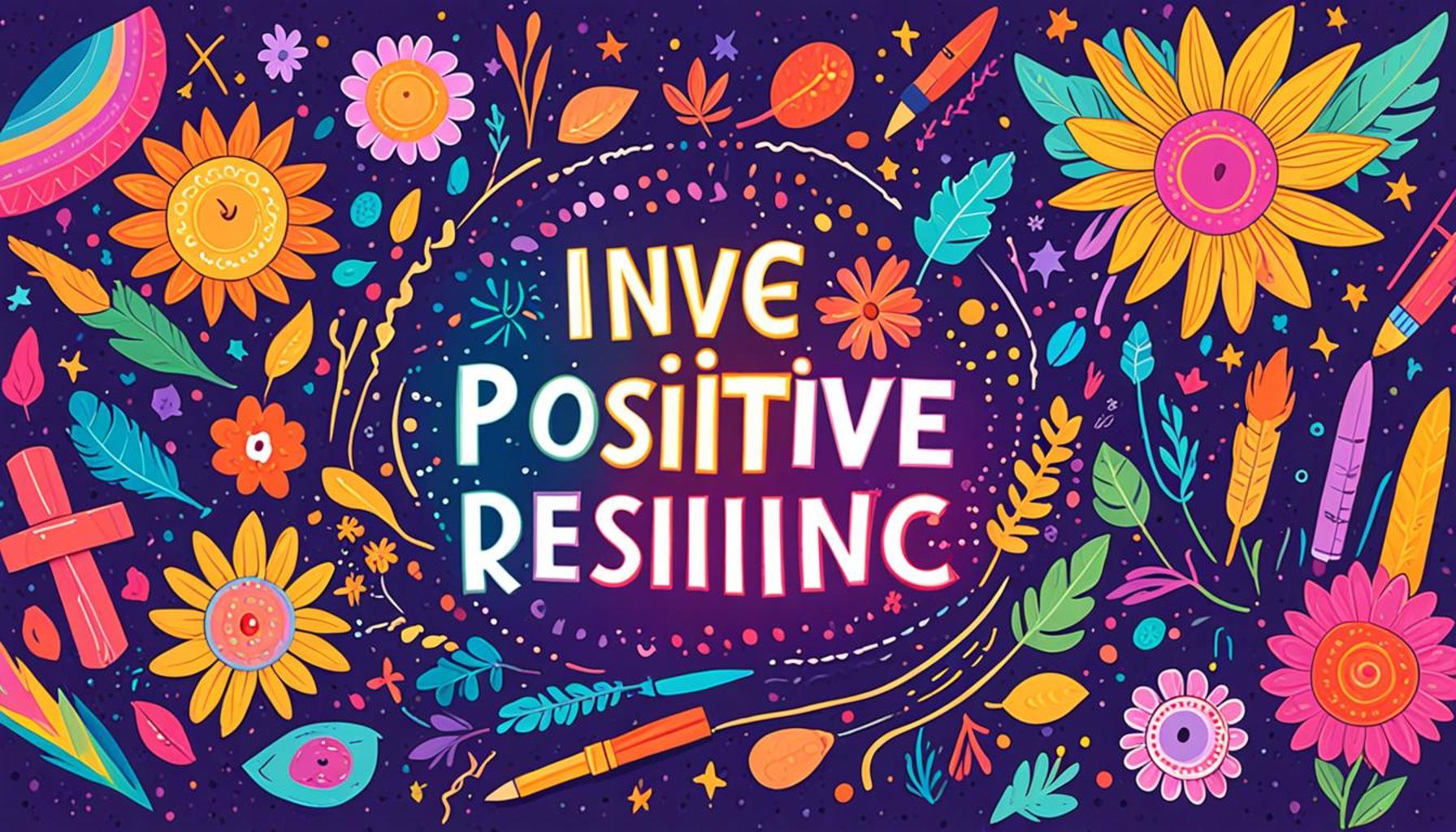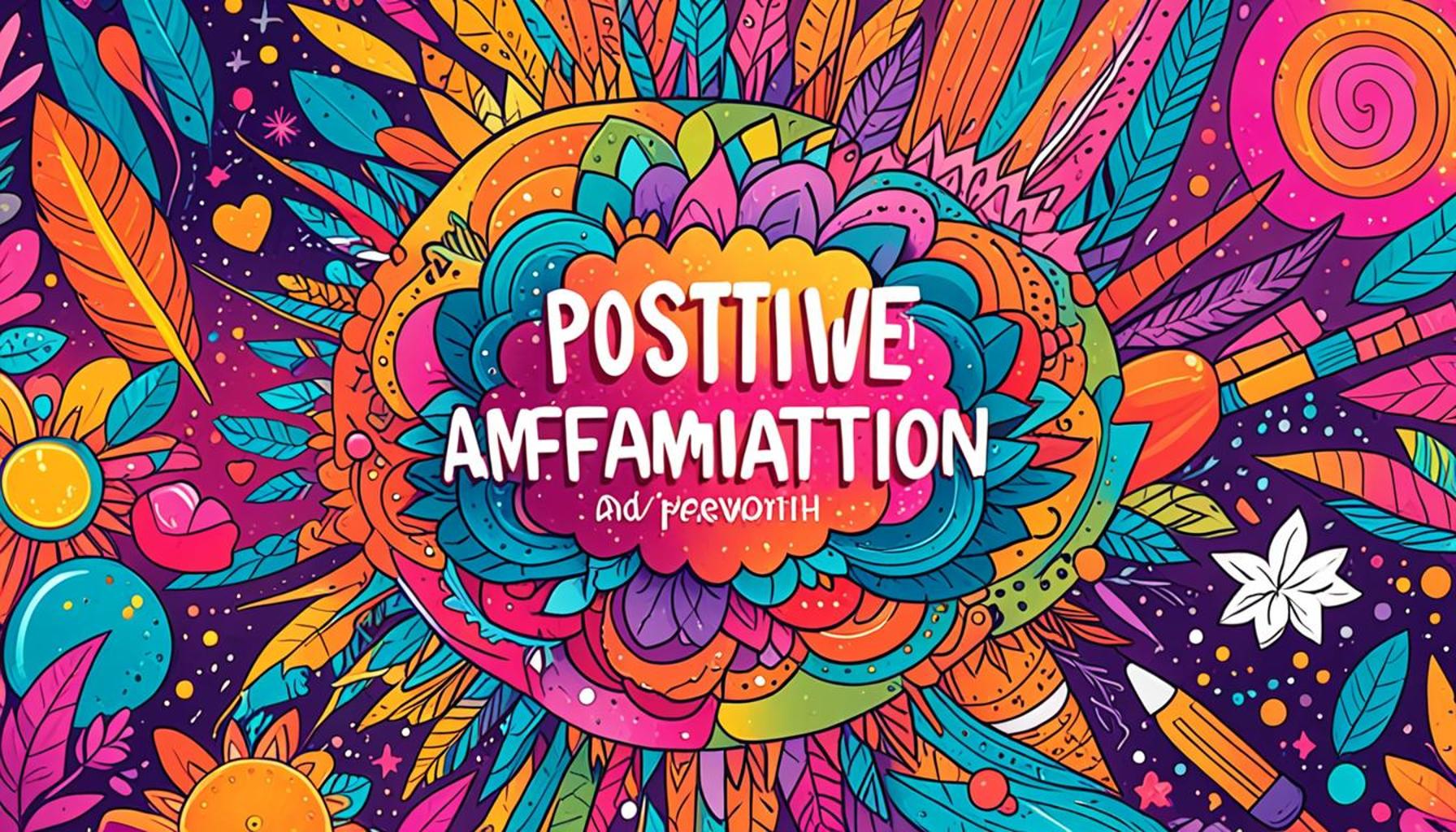Integrating Positive Affirmations into Your Routine to Develop Resilience

The Importance of Resilience in Today’s World
Resilience is a key attribute that enables individuals to confront and overcome adversities with determination and assurance. In the face of life’s unpredictable nature, integrating positive affirmations into your daily habits presents a significant opportunity to enhance mental wellness and bolster emotional fortitude.
Consider the impact of starting each day armed with a mindset attuned to positivity. This approach isn’t just beneficial for your emotional health; it actively shapes your perception of the world around you. Here are a few compelling ways that positive affirmations can help nurture your resilience:
- Boosts Self-Esteem: By regularly repeating affirmations, you reinforce your self-worth. Statements such as “I am capable” or “I am deserving of good things” encourage you to truly believe in your abilities. For instance, in a competitive job market like Nigeria’s, having a strong self-image can give you the confidence to pursue opportunities that you might otherwise shy away from.
- Cultivates Optimism: Affirmations instill a positive mindset, enabling you to view your obstacles as avenues for personal development. For example, when faced with academic challenges, a student might affirm, “Each mistake brings me closer to success,” fostering a belief that setbacks are merely stepping stones toward achievement.
- Mitigates Stress: The practice of affirmations can significantly lower anxiety levels, offering a sense of serenity even during tumultuous periods. During a stressful season, repeating phrases like “I am calm and in control” can create a powerful buffer against feelings of overwhelm.
Nigeria’s rapidly evolving society often places immense pressure on individuals, whether through career demands, economic fluctuations, or social expectations. Embracing positive affirmations can liberate you from the cycles of negativity, allowing you to cultivate a robust and resilient mindset. This practice transcends the mere recitation of uplifting words; it requires a deep internalization of their meaning and potential to enact real-life change.
As you immerse yourself in the upcoming sections of this article, you will discover actionable strategies and inventive methods to seamlessly incorporate the transformative power of affirmations into your daily life. With each affirmation, you can fortify your resilience, ensuring that you remain steadfast in the face of life’s inevitable challenges.
SEE ALSO: Click here to read another article

Embracing Positive Affirmations for Resilience Building
Integrating positive affirmations into your daily routine can significantly amplify your resilience. This practice goes beyond mere repetition of uplifting phrases; it involves a commitment to reshaping your self-perception and enhancing your ability to navigate challenges. Resilience is not just about bouncing back from setbacks; it is about developing a mental framework that supports continual growth and adaptability in the face of adversity.
To understand how affirmations can serve as a powerful tool for resilience, it’s crucial to recognize their psychological underpinning. The brain is wired to respond to positive stimuli, and when you consciously choose to affirm your strengths and capabilities, you trigger a cascade of beneficial neurochemical responses. This not only boosts your mood but also equips you with the mental fortitude to handle life’s unpredictable events.
For instance, many Nigerians face demanding situations such as harsh economic realities and societal expectations. In such a context, the use of affirmations like “I am strong enough to face any challenge,” or “I have the power to create positive change,” can instill a sense of empowerment and agency. These assertions help counteract negative thoughts that may arise due to external pressures, promoting a mindset of hope and resilience.
Here are several strategies to effectively integrate positive affirmations into your routine:
- Morning Rituals: Start your day with a set of positive affirmations. This morning ritual can frame your mindset for the challenges ahead. Create a list of personal affirmations that resonate with your goals and aspirations.
- Mindfulness and Meditation: Combine affirmations with mindfulness practices. Taking a few moments to meditate while repeating affirmations can deepen your connection with them, embedding these positive beliefs into your subconscious.
- Visual Reminders: Write your affirmations on sticky notes and place them where you will see them often: on your mirror, fridge, or workspace. This constant reminder helps reinforce positive thoughts throughout your day.
- Journaling: Incorporate affirmations into your journaling practice. Write down a few affirmations along with your goals. Reflecting on these in writing allows for deeper engagement and understanding.
- Affirmation Groups: Share affirmations with friends or family members. Establishing a support system encourages consistency and creates a community of positivity, where each member inspires the other to develop resilience.
By consciously integrating these elements into your daily habits, you can weave resilience into the fabric of your life. The objective is to resonate with your affirmations authentically, transforming them into a powerful source of strength. This process may feel gradual, but with consistency, it opens pathways to a more resilient, confident self.
Integrating positive affirmations into your daily routine can yield significant benefits for developing resilience. This practice helps individuals rewire their subconscious mind, allowing them to adopt a more optimistic mindset even in the face of challenges. As an essential element in cultivating resilience, positive affirmations act like a mental toolkit, empowering individuals to overcome obstacles and reinforcing their ability to cope with stress.From morning rituals to evening reflections, incorporating affirmations can transform your entire day. For instance, starting the day by repeating phrases such as “I am capable of achieving my goals” can foster a sense of purpose and direction. This early boost in confidence creates a powerful momentum that carries throughout the day.Moreover, repetition is key to truly embedding these affirmations into your psyche. Engage with them daily, whether through journaling, meditation, or simply saying them aloud. The more consistent you are, the more profound their impact on your resilience will become.Research shows that individuals who actively practice positive affirmations often experience reduced stress levels and improved emotional regulation. These benefits contribute to a greater sense of self-efficacy, meaning that people are more likely to believe in their ability to navigate through life’s difficulties. This increased self-belief is a vital component of resilience, allowing individuals to face challenges head-on rather than retreating in fear.Additionally, positive affirmations can promote a healthier self-image and improve interpersonal relationships. When you view yourself and your capabilities positively, you are less likely to engage in negative self-talk, which can lead to anxiety and self-doubt. This shift not only enhances your personal well-being but also allows you to approach others with greater empathy and understanding.In short, integrating positive affirmations into your routine serves as an effective strategy for fostering resilience. This transformative practice not only enriches self-awareness and self-acceptance but also cultivates a mindset that thrives in adversity. Embrace the power of positive affirmations, and discover how they can redefine your ability to bounce back from life’s challenges.
ADDITIONAL INSIGHTS: Expand your understanding here
Creating a Sustainable Affirmation Practice
As you embark on your journey of integrating positive affirmations into your daily routine, it is essential to cultivate a sustainable practice that evolves alongside your personal growth. Resilience is not a static trait, but rather a dynamic quality that can be nurtured over time. Harnessing the full potential of affirmations entails creating a structure that keeps you engaged and motivated.
One effective method to develop a lasting affirmation practice is to establish specific themes for your affirmations. For instance, you might focus on various areas such as self-love, career growth, and emotional well-being. In a bustling society like Nigeria, where many face multifaceted challenges ranging from economic pressures to social expectations, tailoring your affirmations allows you to directly address your personal hurdles. A theme such as “I embrace my innate potential and strive for excellence in every endeavor,” can be particularly empowering, igniting a drive for success amidst external adversity.
Moreover, consider the timing and context in which you affirm your statements. Research indicates that affirmations are most effective when aligned with emotional states and situational demands. For instance, when facing stress or anxiety—common experiences in Nigeria due to factors like work pressure or educational competition—affirmations like “I remain calm and focused in challenging situations,” can provide immediate relief. Taking the time to reflect on situations that trigger stress will help you create and utilize affirmations that resonate at a deeper emotional level.
Additionally, one powerful approach to embedding positive affirmations into your life is to engage in storytelling. This can be accomplished by framing your affirmations in the context of personal narratives or experiences. By connecting a statement such as “I am capable of achieving my dreams,” to a time when you successfully overcame a challenge, you are reinforcing the authenticity of your affirmation. This strategy not only augments your belief in the affirmation itself but also strengthens your emotional resilience as you remind yourself of your capabilities.
The impact of a communal affirmation practice cannot be overlooked. In many communities across Nigeria, the concept of pulling strength from one another is vital. Create affirmation circles, either in-person or virtually, where individuals support each other by sharing affirmations, experiences, and encouragement. This collaborative effort fosters an environment of positivity while collectively enhancing emotional resilience. Such platforms can evolve into invaluable networks that inspire, motivate, and proliferate a culture of positivity.
Furthermore, to maximize the benefits from your affirmations, contemplate incorporating them into physical activity—an often overlooked yet powerful method. For instance, reciting your affirmations while engaging in exercise, whether it’s yoga, jogging, or dance, not only enhances your physical health but also solidifies a sense of empowerment throughout your body. In Nigeria, where culture celebrates the joy of movement, linking affirmations to these activities can create a thrilling experience that reinforces both mental and physical resilience.
In summary, integrating positive affirmations into your routine is a commitment that reaps rewards over time. By personalizing your affirmations, connecting them to emotional states, framing them through storytelling, and establishing a supportive community, you can lay the groundwork for a resilient mindset that thrives amidst life’s myriad challenges.
RECOMMENDED: Check out this similar article
Final Thoughts on Building Resilience through Affirmations
In conclusion, the journey of integrating positive affirmations into your daily practices is both transformative and empowering, offering a pathway to cultivate deeper resilience. As you navigate the myriad challenges that life presents, especially within the unique context of Nigeria, implementing a structured affirmation routine tailored to your personal and societal hurdles can be a game changer. By embracing themes such as self-worth, ambition, and emotional well-being, you not only reinforce your belief in your potential but also create a framework for sustainable growth.
The connection between affirmations and emotional states cannot be overstated. Recognizing the need for affirmations aligned with your circumstances equips you to respond to stressors more effectively. Coupled with storytelling and community engagement, your affirmations can resonate on a much deeper level, bolstering your belief system and fostering a supportive network around you. Initiatives such as affirmation circles show that collective strength can be a powerful source of motivation.
Furthermore, incorporating affirmations into physical activities taps into the rich cultural heritage of Nigeria, celebrating not only mental resilience but also physical vitality. Whether it’s during a spirited dance or a moment of quiet reflection, intertwining movement with positive self-talk creates a holistic approach to well-being.
Ultimately, the practice of using affirmations to develop resilience is a journey of self-discovery and empowerment. It invites you to challenge the status quo, redefine your narrative, and foster a culture of positivity—one affirmation at a time. As you commit to this enriching practice, you’re not just transforming your perspective; you’re inspiring others in your community to embark on a similar quest for strength and resilience.


